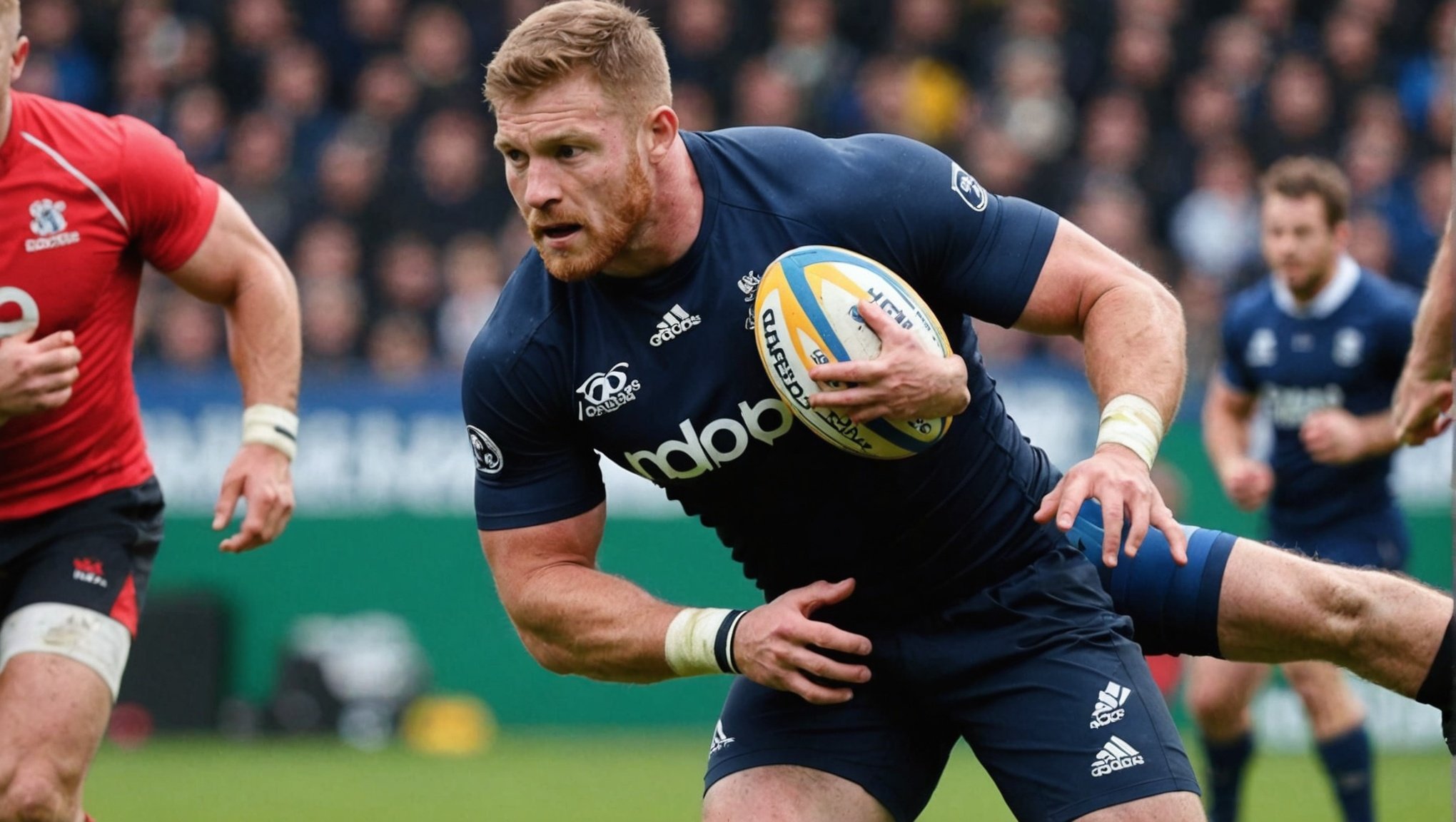Overview of Nutritional Needs for Rugby Players
Meeting the unique nutritional needs of a rugby player is crucial for optimum performance and muscle recovery in such a demanding sport. A well-balanced rugby diet should be tailored to support the intense physical demands of the game, ensuring athletes have the energy and nutrients they need.
Essential Macronutrients
- Proteins, carbohydrates, and fats form the backbone of a rugby diet.
- Proteins: Vital for muscle repair and growth, should be consumed from both animal and plant sources.
- Carbohydrates: Primary energy source; needed to maintain stamina and resilience during matches.
- Fats: Provide long-term energy reserves and support overall health.
Role of Vitamins and Minerals
Vitamins and minerals are equally imperative for muscle recovery and overall well-being. Key players include:
In parallel : Exploring the Impact of Technology on the Evolution of Football Tactics in the UK
- Iron: Boosts oxygen transport to muscles, enhancing endurance.
- Calcium and vitamin D: Essential for bone health, reducing the risk of fractures.
- B-Vitamins: Aid in energy metabolism, ensuring efficient energy use during play.
A rugby player’s diet should be meticulously planned to balance these elements, meeting not just the demands of the sport but also contributing to long-term health benefits.
Macronutrient Ratios for Optimal Recovery
Achieving the right macronutrient ratios is pivotal in enhancing recovery nutrition for athletes. These ratios dictate how protein, carbohydrates, and fats should be balanced to support muscle repair, energy restoration, and inflammation management. Each component plays a distinct role in ensuring athletes recover efficiently and effectively.
Topic to read : Unlocking Peak Performance: The Ideal Sleep Strategies for UK Track Athletes
Importance of Protein in Muscle Repair
Protein sources are essential for muscle repair. After rigorous activities, muscles undergo wear and tear. Protein provides the necessary amino acids for tissue regeneration. Rugby players, for instance, benefit greatly from lean protein sources like chicken, fish, or plant-based proteins such as beans and lentils.
Carbohydrate Timing for Energy Restoration
Carbohydrate intake post-training is crucial for replenishing glycogen stores, providing energy for subsequent workouts. Ideally, athletes should consume carbohydrates within 30 minutes after exercise when muscles are most receptive. Examples include fruits, whole grains, and sports drinks.
Fats and Their Role in Inflammation Management
Inclusion of healthy fats is significant in managing inflammation. Omega-3 fatty acids, found in sources like salmon, walnuts, and flaxseeds, help reduce muscle soreness and improve joint health. Balancing these macronutrient ratios not only supports recovery nutrition but also optimises overall athletic performance.
Timing and Frequency of Meals
Understanding the timing and frequency of your meals is pivotal in enhancing recovery and overall health. Meal timing can significantly impact how efficiently your body recovers after physical activity. Consuming well-timed pre- and post-workout meals can optimize nutrient utilization, leading to quicker recovery and improved performance.
Meal and snack frequency also play a crucial role. Instead of traditional large meals, many people find that eating smaller, more frequent meals can help maintain energy levels throughout the day. This approach supports sustained energy release, preventing energy crashes and ensuring a steady supply of nutrients.
For nutritional timing surrounding workouts, it’s beneficial to consume carbohydrates and protein within the two-hour window post-exercise. This combination aids muscle repair and replenishes glycogen stores, crucial for those engaging in regular physical activity. On the other hand, pre-workout nutrition should focus on easily digestible foods that provide a quick energy release, supporting optimal performance.
Incorporating these timing strategies into daily life can help individuals make informed decisions about their dietary habits, ultimately leading to better health outcomes and enhanced athletic performance. Tailoring meal timing and frequency to your lifestyle and activity level can create a balanced and effective nutritional plan.
Hydration Strategies
Understanding the necessity of hydration is pivotal for athletic performance. It is particularly vital in sports like rugby, where intense physical exertion demands optimal hydration levels for both performance and recovery.
Importance of Staying Hydrated
Athletes need to adhere to specific hydration guidelines to prevent dehydration, which can impair performance and increase the risk of injury. Proper hydration supports crucial bodily functions, aids in temperature regulation, and enhances cognitive function.
Electrolyte Balance in Hydration
Electrolytes play a significant role in maintaining athletic hydration by ensuring fluids are efficiently absorbed and retained in the body. Depletion of these salts through sweat necessitates their replenishment to maintain muscle function and avoid cramps. Potassium and sodium are particularly crucial for effective recovery hydration.
Best Hydration Practices for Rugby Players
For rugby players, adopting hydration strategies involves a careful balance of fluid and electrolytes. Effective practices include:
- Consuming fluids consistently throughout the day.
- Prioritizing recovery hydration post-exercise, using drinks rich in electrolytes.
- Monitoring urine color to gauge hydration status and adjust intake as needed.
Implementing these strategies can significantly enhance muscle recovery and sustain peak performance levels.
Supplement Recommendations
In the world of sports and fitness, nutrition supplements play an essential role in enhancing performance and muscle recovery. Among these, evidence-based supplements such as protein powders, branch-chain amino acids (BCAAs), and creatine are popular choices for athletes.
Protein powders are widely used for muscle repair and growth, especially after intense workouts. The best time to consume them is within 30 minutes post-exercise, when the body’s demand for protein is at its peak. These supplements provide a convenient source of high-quality protein to support muscle recovery.
Similarly, BCAAs offer benefits by reducing exercise-induced muscle damage and soreness. Taken before or after workouts, BCAAs can help in maintaining muscle mass, particularly during weight loss or intense training cycles.
Creatine is another popular sports supplement that promotes enhanced strength and power in short-burst, high-intensity activities. Regular supplementation with creatine can improve workout efficiency by replenishing ATP, the energy currency of muscular contractions.
Lastly, omega-3 fatty acids, although not traditional sports supplements, are crucial for reducing inflammation and aiding in the body’s recovery process. Consuming omega-3s through diet or supplements may promote overall health and improve recovery outcomes for active individuals.
Practical Tips and Meal Plans
Creating effective meal plans is crucial for rugby players to ensure optimal performance and recovery. Structuring balanced meal plans involves considering both macro and micronutrients essential for energy and recovery.
Example Meal Plans for Rugby Players
For rugby players, a typical rugby diet plan includes meals rich in carbohydrates, proteins, and healthy fats. A well-rounded breakfast could consist of porridge with fruits, providing a good carbohydrate source for energy. For lunch, a chicken salad with mixed greens offers lean protein and essential vitamins. Dinner might include quinoa with grilled salmon and steamed vegetables, supplying ample protein and omega-3 fatty acids for muscle recovery.
Snack Ideas for Quick Recovery
Recovery meals and snacks play a vital role post-training sessions. Opt for snacks like Greek yogurt topped with berries or a whole-grain wrap filled with turkey and avocado. These are easy-to-prepare options that aid in muscle repair and replenish glycogen stores efficiently.
Recipes to Enhance Post-Training Recovery
Post-training, focus on recipes combining key recovery nutrients. For example, a smoothie with spinach, banana, almond milk, and protein powder can be delicious and effective. Chicken stir-fry with brown rice also delivers a balanced combination of proteins and carbohydrates, aiding in recovery. Emphasising meals that incorporate both protein and carbohydrates helps speed up the healing and rebuilding process after intensive training.











